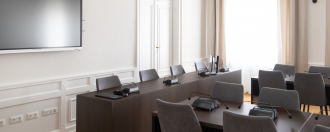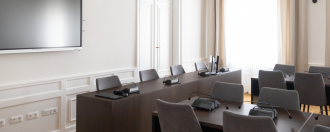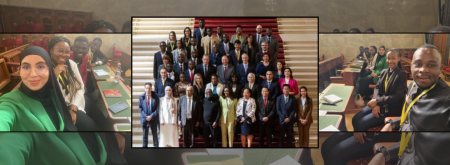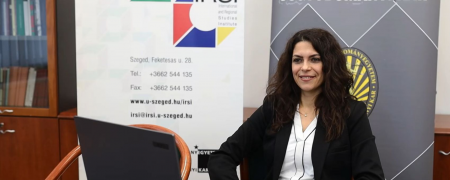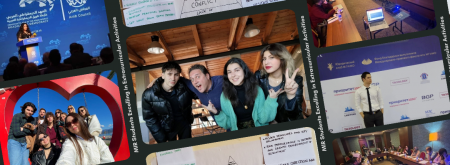Political Sciences
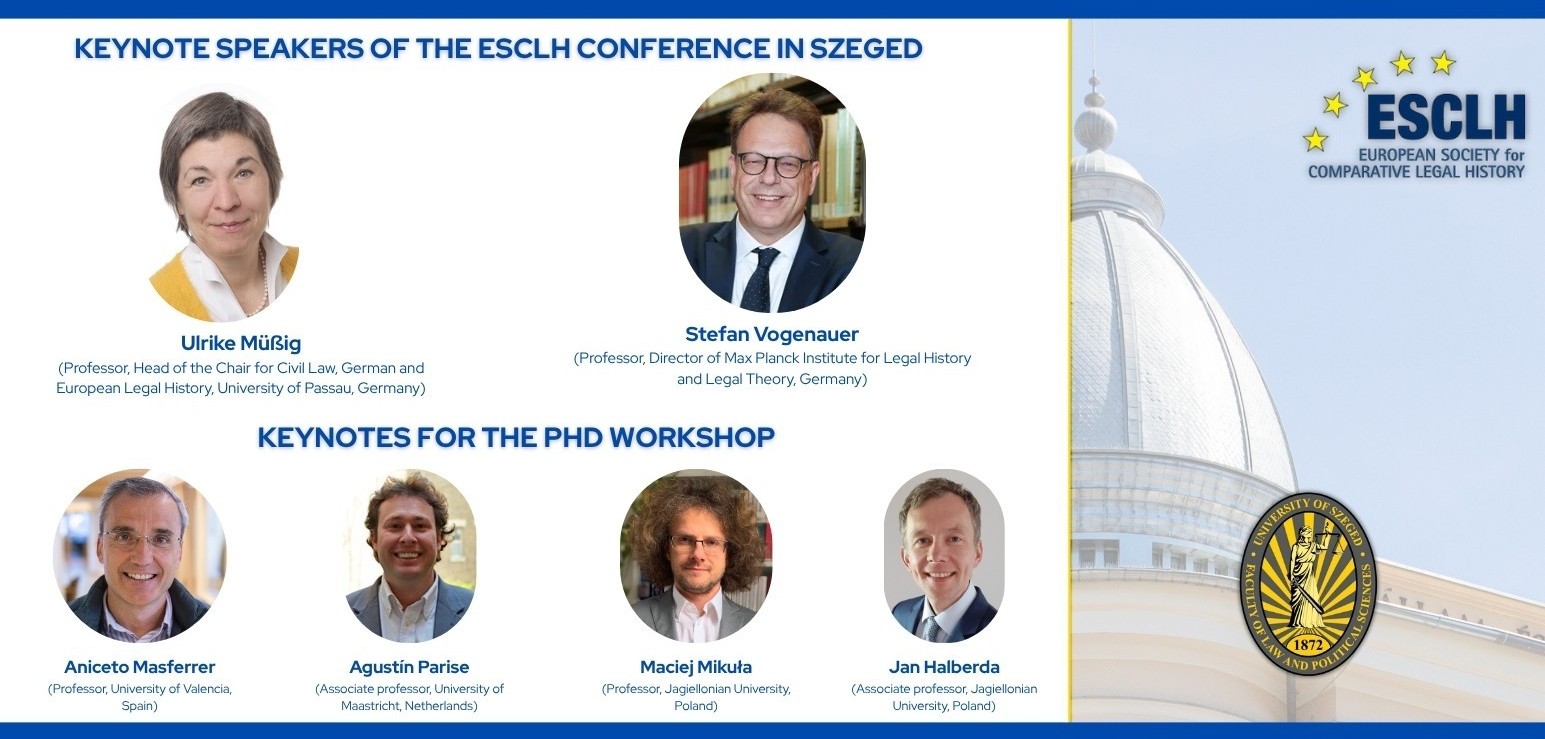
We would like to shortly introduce the keynote speakers of the ESCLH Conference in Szeged.
It is our great pleasure to present the distinguished scholars who will deliver keynote lectures at the 8th Biennial Conference of the European Society for Comparative Legal History (ESCLH).
First keynote presentation is Ulrike Müßig: Rome is not Rome: The (Legal Historian) Impact of Northern European Humanism alongside the Eagerness of Reading Primary Sources within the Networks of Konrad Celtis.
You can follow the lecture of our first keynote speaker on this link from 2 PM on 2nd of July.
The second keynote presentation of the conference is delivered at the gala dinner on 3rd of July.You can follow his lecture on this link from 7 PM on 3rd of July.
Keynote speakers in the plenary session
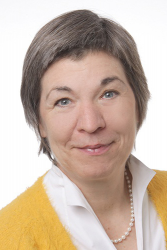 Ulrike Müßig is a distinguished legal historian and Head of the Chair for Civil Law and German and European Legal History at the University of Passau, Germany. With an academic background from the Universities of Würzburg, Cambridge, and Paris II Panthéon-Assas, she brings a wealth of comparative and historical expertise to her research. She is renowned for her leadership of the ERC Advanced Grant project "ReConFort," which explores constitutional formation in 18th- and 19th-century Europe. Professor Müßig has been honored with prestigious awards, including the Heisenberg Prize from the German Research Foundation and memberships in the Austrian and the Andalusian Academy of Sciences. Her work bridges legal history with contemporary issues, making significant contributions to European constitutional studies. She is a sought-after speaker, having delivered guest professorships at institutions like the Sorbonne (both at Paris II Panthéon-Assas and at Paris I Panthéon-Sorbonne), the Università degli Studi di Macerata, the University of Gdańsk and the Charles University Prague (forthcoming 2026). We are delighted to welcome Professor Müßig to our international conference, where her insights will enrich our discussions on law and history.
Ulrike Müßig is a distinguished legal historian and Head of the Chair for Civil Law and German and European Legal History at the University of Passau, Germany. With an academic background from the Universities of Würzburg, Cambridge, and Paris II Panthéon-Assas, she brings a wealth of comparative and historical expertise to her research. She is renowned for her leadership of the ERC Advanced Grant project "ReConFort," which explores constitutional formation in 18th- and 19th-century Europe. Professor Müßig has been honored with prestigious awards, including the Heisenberg Prize from the German Research Foundation and memberships in the Austrian and the Andalusian Academy of Sciences. Her work bridges legal history with contemporary issues, making significant contributions to European constitutional studies. She is a sought-after speaker, having delivered guest professorships at institutions like the Sorbonne (both at Paris II Panthéon-Assas and at Paris I Panthéon-Sorbonne), the Università degli Studi di Macerata, the University of Gdańsk and the Charles University Prague (forthcoming 2026). We are delighted to welcome Professor Müßig to our international conference, where her insights will enrich our discussions on law and history.
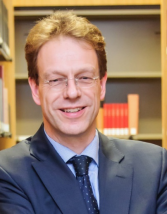 Stefan Vogenauer is a distinguished German legal scholar and a Director at the Max Planck Institute for Legal History and Legal Theory in Frankfurt am Main. Born in 1968 in Eutin, he studied law at prestigious institutions including the Universities of Kiel, Paris, and Oxford, where he earned a Magister Juris. He has held the position of Director at the Max Planck Institute since 2015, leading the Department of European and Comparative Legal History. Prior to this, he was the Linklaters Professor of Comparative Law at the University of Oxford from 2003 to 2015, where he also served as Director of the Institute of European and Comparative Law. Vogenauer’s research focuses on European legal history, comparative law, transnational private law, and legal methodology, with a particular interest in legal transfers within the common law world. He has received numerous accolades, including the Humboldt Research Award in 2012 and the Otto Hahn Medal from the Max Planck Society in 2002. Professor Vogenauer has held visiting positions at the Universities of Auckland, Melbourne, Paris 2 – Panthéon Assas and Stellenbosch, and also at Bucerius Law School, Louisiana State University (LSU), National Law University Delhi, National Taiwan University (NTU), New York University (NYU) and the University of Texas at Austin. As chair of Max Planck Law, he oversees a network of nine Max Planck Institutes dedicated to legal studies, fostering collaboration and innovation in the field.
Stefan Vogenauer is a distinguished German legal scholar and a Director at the Max Planck Institute for Legal History and Legal Theory in Frankfurt am Main. Born in 1968 in Eutin, he studied law at prestigious institutions including the Universities of Kiel, Paris, and Oxford, where he earned a Magister Juris. He has held the position of Director at the Max Planck Institute since 2015, leading the Department of European and Comparative Legal History. Prior to this, he was the Linklaters Professor of Comparative Law at the University of Oxford from 2003 to 2015, where he also served as Director of the Institute of European and Comparative Law. Vogenauer’s research focuses on European legal history, comparative law, transnational private law, and legal methodology, with a particular interest in legal transfers within the common law world. He has received numerous accolades, including the Humboldt Research Award in 2012 and the Otto Hahn Medal from the Max Planck Society in 2002. Professor Vogenauer has held visiting positions at the Universities of Auckland, Melbourne, Paris 2 – Panthéon Assas and Stellenbosch, and also at Bucerius Law School, Louisiana State University (LSU), National Law University Delhi, National Taiwan University (NTU), New York University (NYU) and the University of Texas at Austin. As chair of Max Planck Law, he oversees a network of nine Max Planck Institutes dedicated to legal studies, fostering collaboration and innovation in the field.
Keynote speakers in the PhD workshop
 Aniceto Masferrer is a distinguished Professor of Legal History and Comparative Law at the University of Valencia in Spain. He has built an impressive academic career with extensive international experience. He has been educated and held visiting positions at prestigious institutions such as the University of Cambridge, Harvard Law School, and the Max Planck Institute for European Legal History in Frankfurt. Masferrer has authored or edited around thirty five books and over a hundred and fifty academic articles and book chapters, focusing on topics like criminal law, human rights, and the history of legal traditions. He serves as the editor of GLOSSAE: European Journal of Legal History and directs the Institute for Social, Political, and Legal Studies. Beyond academia, he is the vice-president of the Universitas Foundation and co-founder of "Free Thinkers," a platform promoting critical thinking and dialogue. Masferrer also contributes to public discourse through opinion articles in Spanish newspapers like ABC and El Mundo, and has published popular books on ethics, freedom, and democracy.
Aniceto Masferrer is a distinguished Professor of Legal History and Comparative Law at the University of Valencia in Spain. He has built an impressive academic career with extensive international experience. He has been educated and held visiting positions at prestigious institutions such as the University of Cambridge, Harvard Law School, and the Max Planck Institute for European Legal History in Frankfurt. Masferrer has authored or edited around thirty five books and over a hundred and fifty academic articles and book chapters, focusing on topics like criminal law, human rights, and the history of legal traditions. He serves as the editor of GLOSSAE: European Journal of Legal History and directs the Institute for Social, Political, and Legal Studies. Beyond academia, he is the vice-president of the Universitas Foundation and co-founder of "Free Thinkers," a platform promoting critical thinking and dialogue. Masferrer also contributes to public discourse through opinion articles in Spanish newspapers like ABC and El Mundo, and has published popular books on ethics, freedom, and democracy.
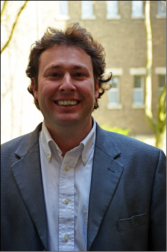 Agustín Parise is a distinguished legal historian and Associate Professor of Law at Maastricht University in the Netherlands. Born in Buenos Aires, Argentina, he earned his LL.B. and LL.D. from the Universidad de Buenos Aires, where he also served as a Lecturer in Legal History from 2001 to 2005. He furthered his education with an LL.M. from Louisiana State University Law Center, where he worked as a Research Associate at the Center of Civil Law Studies from 2006 to 2010. Parise completed his PhD at Maastricht University, focusing on ownership paradigms in civil law jurisdictions such as Louisiana, Chile, and Argentina. He is widely recognized for his book on the influence of Louisiana’s civil code on Argentina’s, which earned him the prestigious Facultad Award from the University of Buenos Aires in 2019. As Secretary-General of the International Association of Legal Science since 2022, he continues to advance the study of comparative legal history globally. Parise also serves as the Editor of Comparative Legal History. Director of the Revista de Historia del Derecho, and Associate Editor-in-Chief of the Journal of Civil Law Studies, contributing significantly to legal scholarship.
Agustín Parise is a distinguished legal historian and Associate Professor of Law at Maastricht University in the Netherlands. Born in Buenos Aires, Argentina, he earned his LL.B. and LL.D. from the Universidad de Buenos Aires, where he also served as a Lecturer in Legal History from 2001 to 2005. He furthered his education with an LL.M. from Louisiana State University Law Center, where he worked as a Research Associate at the Center of Civil Law Studies from 2006 to 2010. Parise completed his PhD at Maastricht University, focusing on ownership paradigms in civil law jurisdictions such as Louisiana, Chile, and Argentina. He is widely recognized for his book on the influence of Louisiana’s civil code on Argentina’s, which earned him the prestigious Facultad Award from the University of Buenos Aires in 2019. As Secretary-General of the International Association of Legal Science since 2022, he continues to advance the study of comparative legal history globally. Parise also serves as the Editor of Comparative Legal History. Director of the Revista de Historia del Derecho, and Associate Editor-in-Chief of the Journal of Civil Law Studies, contributing significantly to legal scholarship.
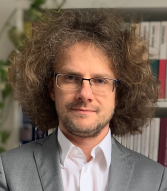 Maciej Mikuła, PhD, is a professor in the Department of Church Law and the Law of Religious Denominations. He graduated in law from the Jagiellonian University in 2007 and in history from the university's Faculty of History in 2008. In 2012 he defended his doctoral thesis, an abridged version of which was published under the title Royal and Parliamentary Legislation for the Royal Cities in Małopolska (1386-1572): A Study in the Rule of Law in Poland. Habilitated in 2018 (monograph: Municipal Magdeburg Law (Ius municipale Magdeburgense) in Poland 14th-early 16th century: A Study on the Evolution and Adaptation of Law). His research interests include the history of German law (especially Magdeburg law) in Central and Eastern Europe, sources of medieval law, editing of historical legal texts, Polish criminal law of the interwar period, guarantees of religious freedom in Poland, the European Union and the United States. He is involved (as a manager, coordinator or researcher) in nine major research projects funded by the European Commission, CELSA, the International Visegrad Fund, the National Science Centre and the National Programme for the Development of the Humanities. He is assistant editor of "Cracow Studies of Constitutional and Legal History". He is also the of member of the editorial board of „Zeitschrift der Savigny-Stiftung für Rechtsgeschichte: Germanistische Abteilung”.
Maciej Mikuła, PhD, is a professor in the Department of Church Law and the Law of Religious Denominations. He graduated in law from the Jagiellonian University in 2007 and in history from the university's Faculty of History in 2008. In 2012 he defended his doctoral thesis, an abridged version of which was published under the title Royal and Parliamentary Legislation for the Royal Cities in Małopolska (1386-1572): A Study in the Rule of Law in Poland. Habilitated in 2018 (monograph: Municipal Magdeburg Law (Ius municipale Magdeburgense) in Poland 14th-early 16th century: A Study on the Evolution and Adaptation of Law). His research interests include the history of German law (especially Magdeburg law) in Central and Eastern Europe, sources of medieval law, editing of historical legal texts, Polish criminal law of the interwar period, guarantees of religious freedom in Poland, the European Union and the United States. He is involved (as a manager, coordinator or researcher) in nine major research projects funded by the European Commission, CELSA, the International Visegrad Fund, the National Science Centre and the National Programme for the Development of the Humanities. He is assistant editor of "Cracow Studies of Constitutional and Legal History". He is also the of member of the editorial board of „Zeitschrift der Savigny-Stiftung für Rechtsgeschichte: Germanistische Abteilung”.
 Jan Halberda is a distinguished legal historian and associate professor at Jagiellonian University in Kraków, Poland, specializing in Anglo-American private law, comparative law, and legal history. Last spring, he was a visiting researcher at Yale Law School, where he conducted research on good faith and fair dealing in common law jurisdictions. Halberda completed his habilitation with a focus on equitable estoppel, a topic that highlights his expertise in the evolution of doctrines of last resort across common law systems. As a practicing attorney-at-law (radca prawny) and expert witness (biegły sądowy), he bridges academic scholarship with practical legal application in private law. His notable publications include analyses of the development of quasi-contracts into modern unjust enrichment law and the tensions between equity and common law. Halberda’s work often explores parallels between Roman law and Anglo-American law, reflecting his comparative approach to legal history. He is an active member of academic communities, including the European Society for Comparative Legal History, and contributes to legal education through lectures on legal history and comparative law.
Jan Halberda is a distinguished legal historian and associate professor at Jagiellonian University in Kraków, Poland, specializing in Anglo-American private law, comparative law, and legal history. Last spring, he was a visiting researcher at Yale Law School, where he conducted research on good faith and fair dealing in common law jurisdictions. Halberda completed his habilitation with a focus on equitable estoppel, a topic that highlights his expertise in the evolution of doctrines of last resort across common law systems. As a practicing attorney-at-law (radca prawny) and expert witness (biegły sądowy), he bridges academic scholarship with practical legal application in private law. His notable publications include analyses of the development of quasi-contracts into modern unjust enrichment law and the tensions between equity and common law. Halberda’s work often explores parallels between Roman law and Anglo-American law, reflecting his comparative approach to legal history. He is an active member of academic communities, including the European Society for Comparative Legal History, and contributes to legal education through lectures on legal history and comparative law.


